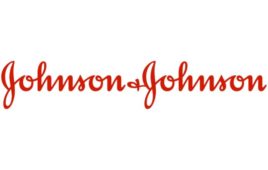Unless you are making cookies, the term “cookie-cutter” has certain negative connotations associated with it. For example, if you are looking for someone to help you solve a problem, you most definitely do not want them to adopt a “cookie-cutter” approach; you want them to look at your problem, suggest solutions, work with you in a collaborative manner, become part of your team, and solve the problem.
In the world of solid dosage formulation, development and manufacturing services one company stands out as a true problem solver: Capsugel, through the formation of its Dosage Form Solutions business unit and subsequent acquisitions of Encap Drug Delivery and Bend Research, has emerged as the industry’s go-to source for solving key formulation challenges, including bioavailability enhancement, targeted and modified release, to help companies develop specialized applications for their developing compounds.
Background and History
The story of how Capsugel and Bend Research came together is an interesting one, and one that illustrates how two companies with similar values, and similar aspirations can come together and form something that is greater than the sum of its parts.
 Capsugel, a global leader in capsule design, portfolio, and manufacturing, has a history dating back more than 100 years. Bend Research’s roots date back to 1975 when two membrane chemists wanted to do contract research work and live in the best place they could find. They settled in Bend, Oregon, and although they were doing research, they laid a foundation for the company, in that they didn’t want to do research for research’s sake – they wanted their research to culminate in a product. It was this philosophy that eventually led the growing company to adapt its membrane technologies to pharmaceutical tablet applications.
Capsugel, a global leader in capsule design, portfolio, and manufacturing, has a history dating back more than 100 years. Bend Research’s roots date back to 1975 when two membrane chemists wanted to do contract research work and live in the best place they could find. They settled in Bend, Oregon, and although they were doing research, they laid a foundation for the company, in that they didn’t want to do research for research’s sake – they wanted their research to culminate in a product. It was this philosophy that eventually led the growing company to adapt its membrane technologies to pharmaceutical tablet applications.
In the mid-80’s Pfizer took an interest in the company’s expertise. The initial interest was around the company’s membrane technology for controlled release, but later the focus was more on inventing and applying new technologies.
This goal led to Bend Research building their first GMP facility with the intention of using it to take projects from the concept stage, through pilot plant to clinical trials, and finally to commercial manufacturing.
Around 1995, the decision was made that Bend Research was to start doing work exclusively for Pfizer. This began approximately 10 years of rapid growth, positioning the company as a premier supplier of drug delivery technologies.
In 2008, the exclusivity with Pfizer ended. As Jim Nightingale, Ph.D., Bend Research’s Managing Director recalls, “we went to a model where we could work with other companies. Pfizer wanted us to succeed and the reason for that is that a lot of the technologies were here – and they still wanted access to it – so they made us a fair deal – they assigned all of the IP to us – and they let us apply it to anyone. Pfizer is still an alliance partner.”
Capsugel too was a business unit of Pfizer until 2011 when the company formally separated from Pfizer and became an independent company.
According to Amit Patel, President, Dosage Form Solutions, Capsugel, the company always had a vision to be more than a supplier of capsules, but now was afforded the opportunity to be a provider of dosage form solutions to the healthcare market.
“That vision statement existed before Capsugel spun out of Pfizer,” says Patel, “but the fact that Capsugel was now an independent company and had the strategic flexibility to fulfill its vision was significantly advanced.”
Patel continues, “Part of that was due to the fact that we were not owned by Pfizer anymore because under them there might have been a certain reluctance of customers to work with a Pfizer owned entity. Second, expanding down that vision statement, while it existed for Capsugel, it was, in fact, not core for Pfizer. And the third reason, having the financial resources and the backing of KKR, our majority owner, was actually quite important past the spin-out.”
Capsugel, like Bend Research, had inherited certain technologies from Pfizer including patents, product development sites, and manufacturing infrastructure that went above and beyond hard capsule production.
“Capsugel could now bring all those things (liquid fill hard capsules, softgels, lipid formulation expertise and certain functional capsule technologies) together into a focused business,” says Patel, “which ended up being called Dosage Form Solutions and was set up on its own path for success.”
Capsugel took all of these assets, formalized the business unit, and announced the creation of the Dosage Form Solutions group in March of 2013.
Capsugel’s vision to become a solid dosage form solutions provider was accelerated in 2013 by the acquisitions of Encap Drug Delivery and later in the year of Bend Research.
Business Philosophy and Approach
The Dosage Form Solutions group looks at its mission as being a collaborative partner that works with customers whether they are in the branded, generic or specialty pharmaceutical, or health and nutrition market segments, to really use their technology and intellectual property to help design the best products and formulation capabilities, as well as manufacturing infrastructure to help their clients all the way to commercialization.
“The technologies we bring to the table are really just a means to an end,” says Patel. “The real value is how can we work with our customers to improve the product they are looking to develop and launch.”
“We get all the hard problem statements coming out of pharma,” says Nightingale, “so the ability to have a group of really smart scientists that not only understands the technology now – but can also take the technology and stretch them to solve problems is a cool spot to be in – we now have this group to do that.”
“We feel like a start-up company,” says Nightingale, “thanks to the attitude of Capsugel and the investment in Dosage Form Solutions.”
“A core principle – a building block that both companies brought – is the equipment and technology know-how. For example, no other capsule manufacturer has 100% inspection technology or the liquid filling/sealing process we have developed,” says Jim Coward, Capsugel’s Head, Market Development – Dosage Form Solutions.
A Great Fit – But Why?
The combination of Capsugel, Bend Research and Encap into the Dosage Form Solutions group has been, to stretch a phrase – a win, win, win situation.
 One of the primary reasons Capsugel became interested in Bend Research and Encap Drug Delivery, was Bend’s expertise in bioavailability enhancement, modified and targeted release technologies, and other specialized applications such as lipid multi-particulate technology, inhalation formulation, its abuse deterrent and taste-masking approaches and other manufacturing capabilities.
One of the primary reasons Capsugel became interested in Bend Research and Encap Drug Delivery, was Bend’s expertise in bioavailability enhancement, modified and targeted release technologies, and other specialized applications such as lipid multi-particulate technology, inhalation formulation, its abuse deterrent and taste-masking approaches and other manufacturing capabilities.
Patel describes the market before the creation of the DFS group, “Prior to the acquisition of Encap and Bend Research into DFS – each one of those three entities were out in the industry providing different solutions for bioenhancement.”
Patel says Bend had made a name for themselves in spray-dried dispersion, hot-melt extrusion, and nanotechnology. Encap had a very focused history of liquid and semi-solid filling, and Capsugel, even before being spun out from Pfizer, had a very good background in lipid formulations.
“It’s not even to say – that one is better than another,” says Patel. “The key question is which one is appropriate for any given situation.”
Patel continues, “So prior to bringing the DFS model together – each entity would be out there trying to find the situations where the technology was most relevant. But by putting them together, the business model is really driven by being somewhat agnostic to the choice of technology and extremely data driven – to pick the most appropriate technology for the task at hand.”
Patel goes on to say that Bend Research brought to Capsugel a set of technologies that completed the “tool kit” as well as a very deep experience level in technology screening and selection that could now be applied to technologies that Capsugel did not have.
“There are not many companies that can claim the length or breadth of experience in that bioenhancement suite of technologies that we have,” says Patel. “We have a full range of capabilities in technologies such as modified release. Where Bend has a history of taking other approaches to modified release, Capsugel has a history of developing very specific and functional technologies toward modified release through capsules – where the capsule itself has characteristics to enable modified release. And Encap has a history of using functional coatings.”
By bringing these three historically different businesses together, DFS now has a very comprehensive toolkit that allows them to not go to market pitching one technology as better than the other, but enables them to bring flexibility, customization and choice of selecting the best and most appropriate technology for their customer’s product.
“We want to work collaboratively, to have an alliance mindset,” says Nightingale.
“We always want the best option for the client – and to have the breadth of knowledge and technology for that client is important.”
He continues, “We don’t take the approach that this is the equipment we have and this is your solution – we take the approach that this is your molecule and what solution do you need and what is the challenge that needs to be solved – to develop a dosage form that can be manufactured.”
“It’s all about getting the product to the patient,” says Nightingale.
“We have a different business model. It would be very difficult to find another service provider that has the capabilities and approach that we do. Our approach is more about problem solving.”
Patel continues, “So when we looked at Bend’s capabilities, from technologies, IP, as well as areas of focus like bioenhancement, modified release and inhalation technologies and large molecule experience, from our perspective, it fit nicely into the broad offering that we were in the process of making.”
 Patel says that Bend Research has developed a very deep expertise in doing fundamental research not just on APIs in the way the pharma industry does but also on drug delivery technologies and platforms, and around research and the tools needed to bring a product to market. The need to do that well boiled down to their expertise in polymer science, applied science, mathematics and other disciplines.
Patel says that Bend Research has developed a very deep expertise in doing fundamental research not just on APIs in the way the pharma industry does but also on drug delivery technologies and platforms, and around research and the tools needed to bring a product to market. The need to do that well boiled down to their expertise in polymer science, applied science, mathematics and other disciplines.
“So when we brought Bend into the fold that event significantly accelerated the DFS strategy,” says Patel. “Bend Research has been integrated into our corporate R&D structure and those teams are really working on what is next in terms of solutions, technologies and offerings that can support the ongoing growth of our hard capsule business as well as our DFS business.”
The Dosage Form Solutions Difference
While the Dosage Form Solutions group is at its heart a service provider to the pharmaceutical industry, they have a very different approach to the client/provider relationship.
“We are not a vendor,” says Bend Research’s Nightingale. “We are different than a CRO, we have a different business model. We realized after asking the market questions that they need more than a technology vendor.”
Nightingale continues, “We always felt like we are working side-by side with the client – we look for that camaraderie – which is different than other CROs – we are not just checking off boxes on a list.”
Capsugel’s Patel offers his views, “We get asked the question how is the DFS model different from a CDMO – and the way we look at this – there is a place in the world for CROs, CMOs and CDMOs – they play an important role. If we were to take some simplified statements – the CDMO industry works when the customer comes to that entity with reasonably good clarity and formulation and manufacturing process, and the contract development and manufacturing arm basically executes that.”
“In our DFS model – the customer is coming to us with a target in mind that they want that product to do, from an efficacy, safety and functionality standpoint, and dosing level.”
“Customers are coming to us with more of a problem or aspiration statement for the target profiles. We are bringing not only that science-driven technology selection, but a whole host of technology applications as well as intellectual property and know how that can not only help improve those products, but can provide a degree of intellectual property at the end of the day as well.”
Looking Ahead
Moving forward, the Dosage Form Solutions group will continue to emphasize its science-based approach especially in the areas of bioenhancement.
“A key part of our strategy is to stay ahead of the curve – particularly in areas of bioenhancement and modified release – in terms of what types of technologies we can bring to the table for our customers and in providing an integrated solution from design to commercial scale manufacture,” says Patel.
“Much of the pharmaceutical product pipeline is solubility challenged,” says Capsugel’s Coward. “This has resulted in our investment in spray drying technology at Bend Research.”
Coward continues, “Another component of our growth strategy includes high potency APIs – including high containment capabilities – which we have today – but will continue to invest in.”
“An additional area that can be described as an emerging area for us, and gets ongoing investments, is all of our technologies for the large molecule front,” says Coward. “Historically one would not have thought of Capsugel, especially when owned by Pfizer, as a company that brings unique contributions to biological product development. But with the new Capsugel, including the DFS business and the acquisition of Bend Research and Encap – the capabilities are so much broader – that I think the underlying themes still always come back to a science and engineering approach to technology and product development. These same core competencies have a relevance for the biological industry and provides Capsugel with a means to expand our market.”




